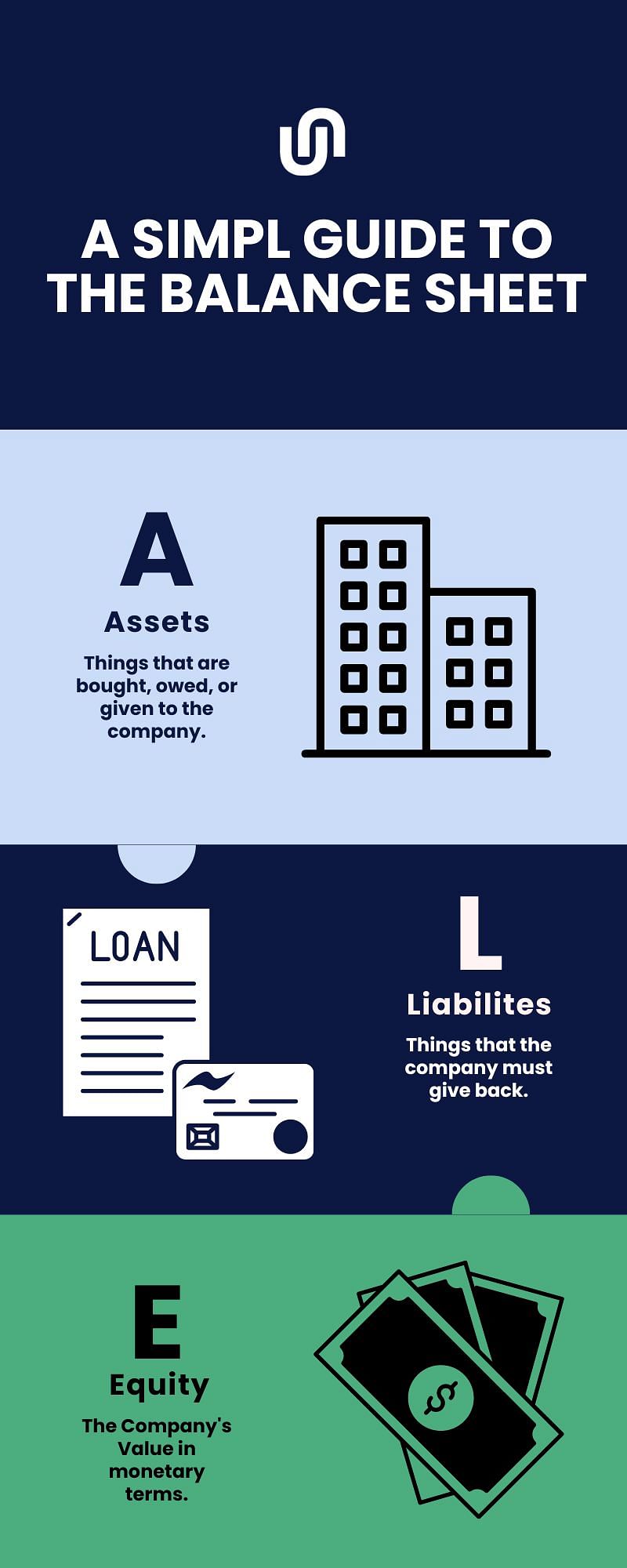
Disclaimer: Please note this article is not financial advice. The purpose of our blog is purely educational, so please consult a professional accountant or financial advisor before making any financial decision.
A Shopify ecommerce balance sheet generated through accounting software allows budding business owners like you to effectively manage and scale your business. It details your online store's performance and includes key metrics like assets, liabilities, and shareholder's equity.
If you're a Shopify user with a software integration such as QuickBooks Online (QBO), your balance sheets are automatically generated. You can view it on the software or the reports section of your shop's settings page. But is this the only document you need in a series of financial statements?
In this article, we’ll take a closer look at Shopify accounting and the role of balance sheets in managing your company's financial health. We'll also tackle the other financial statements briefly for you to gain some knowledge on what they mean for your business.

Accounting is vital because it projects your business's financial position. It serves as a reflection of the economic activity within an enterprise.
An accounting report gives you, your investors, creditors, and regulators detailed intelligence into how well you execute financial decisions. It also allows key decision-makers to work with appropriate oversight if something untoward occurs within your business.
In accounting, you’ll usually face challenges related to changes in tracking, inventory reporting, sales, and revenue. You’ll also need to deal with complex tax laws and regulations.
There are essential facts about Shopify accounting you must know as an online business owner, and here are some of them.
When selling online, you have to deal with both physical products and shipping costs, and Shopify has a feature to help you track your inventory. However, Shopify does not track factory expenses because there is no production process involved when running an online store.
When you grow your business, there’s a chance you’ll sell internationally, which means you have to deal with multiple currencies. This can be challenging because it requires conversion of revenue and expenses into your home currency for reporting purposes. If you get started with Shopify accounting, you won’t have to worry about this as the platform has multiple-currency features.
When you sell products across states, you need to stay compliant with various laws and regulations, especially for products subject to sales tax. When using Shopify accounting, you can enjoy automatic sales tax calculation. Nevertheless, it would be best to choose an agency with experience in dealing with tax laws and regulations to ensure compliance and avoid any legal problems.
Shopify accounting offers ecommerce financial data resources on its website, which includes a comprehensive overview of various reports, templates, and tutorials to get you started or improve your existing processes.
You can handle COGS by keeping track of how much inventory your company had at the end of an inventory period. The COGS calculation can also include depreciation or amortization of assets used during that inventory period. A more accurate way to calculate COGS for ecommerce is to keep track of units sold periodically and multiply it by the cost per unit. You can get insights on these data through Shopify accounting.
Reporting with Shopify accounting is not much different than the process that's used with other financial reports. However, there are slight differences to note if you're using Shopify accounting services or software packages:
The Shopify accounting process has powerful tools available to generate accurate results on time.
Shopify accounting fees can affect your business, so staying updated on the latest rates and pricing methods is important—these costs can change how you price products. You must ensure that your income is always higher than your expenses and that you have a healthy profit to ensure your business thrives.

An ecommerce balance sheet is a financial statement that offers a snapshot of your company's financial position and growth potential at a specific time. It is divided into three main sections: Assets, Liabilities, and Shareholder Equity.
Assets represent everything that you own, including items you’re owed. Assets are divided into two categories: current and long-term. Current assets include:
Long-term assets are intangible assets, like trademarks and patents, that provide value over a longer period.
Fixed assets refer to items the company owns that have long-term value, such as buildings, machinery, and equipment.
To calculate assets, you have to use the standard balance sheet equation.
Total Assets = Total Liabilities + Shareholder Equity
Asset Category Examples:
Liabilities refer to your financial obligations, including money owed to suppliers, employees, and lenders. Similar to assets, liabilities are categorized into two: short- and long-term liabilities.
Current liabilities, such as accounts payable and wages, are obligations that must be settled within 3 months up to a year. Long-term liabilities include bonds payable, which will be paid over a longer timeframe.
Liability Category Examples
Shareholder equity or owner's equity represents ownership of the business expressed in monetary amounts. As a whole, this account also reflects the true financial standing of an ecommerce business and indicates its current value to its owners. A higher shareholder equity generally denotes a more financially stable and profitable company.
To calculate shareholder equity, we rearrange the balance sheet equation:
Shareholder Equity = Total Assets - Total Liabilities
By understanding how assets, liabilities, and shareholder equity are interconnected, you can assess the financial health of your company more accurately.
The balance sheet provides stakeholders an overall picture of the business’s health. But for Shopify business owners like you to manage your business well, you also must understand and pay attention to what’s going on with the other financial statements. Let's take a closer look at income statements and cash flow statements, which are both available on Shopify.
This document reports your revenue, expenses, and net income earned in a given duration. It's important to look at both the revenue and net income generated. If your store is making more money but also incurring higher expenses, this could be a sign that you're not making wise financial decisions, and you must adjust.
This statement tracks how much cash your store generates or uses. It helps you monitor positive and negative cash flow. This is important in keeping your business’s day-to-day operation.
The cash flow statement is oftentimes overlooked by some small business owners because balance sheets and income statements seem sufficient in telling how operations are doing. But running out of cash is a real problem—a critical mistake that can put a business owner out of business overnight. Paying attention to cash flow, through cash flow statements, helps prevent this.
Balance sheets are essential for stakeholders and business owners. Online sellers give more emphasis to balance sheets as it is one of the financial reports you need to decide the fate of your business.
Nevertheless, Shopify income and cash flow statements are also just as important. They help keep track of your company's finances in terms of inventory, revenue, and expenses.
Doing these financial statements right is important. By working with accounting experts, like who we have here at Unloop, you can easily get better balance sheets with accurate numbers that will help you identify what your business needs and make sound decisions. Plus, you’ll have the other financial statements taken care of along with it.
Are you ready to supercharge your Shopify finances? Get in touch with our team to know more about our bookkeeping services today.
Unloop is the first and only accounting firm exclusively servicing ecommerce and inventory businesses in the US and Canada. With the power of people and technology, our team dives deep into COGS and inventory accounting. You are paired with a dedicated bookkeeping team that prepares accurate financial statements, financial forecasts, and can also pay bills or run payroll for you. Come tax time, everything is organized and ready to go, so you don't need to worry. Book a call with an ecommerce accountant today to learn more.